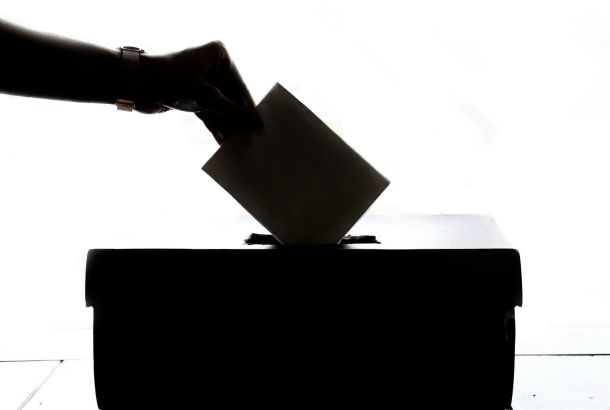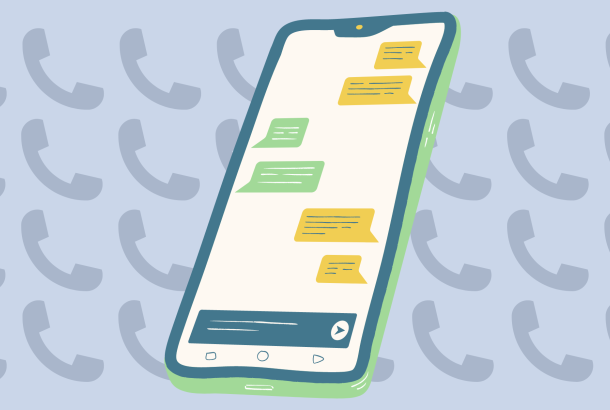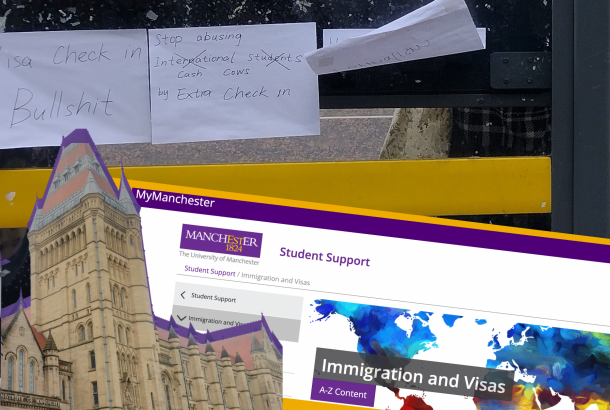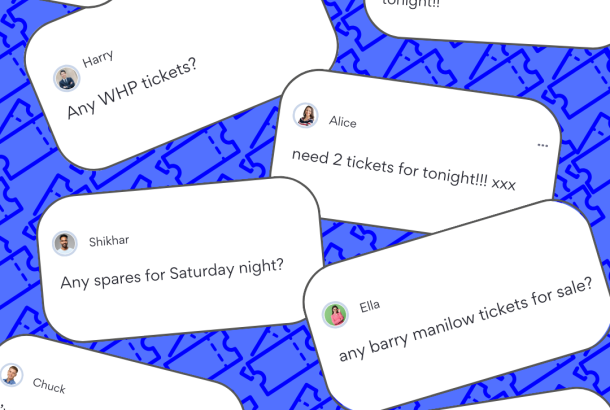SafeZone: ‘Authoritarian’ or keeping students safe?
By Ella Robinson and Carlo Di Giammarino

One day after fences were torn down at Fallowfield Campus, the University of Manchester shared a new way to “keep the Manchester community safe during lockdown” – the SafeZone app.
The app was first launched to all staff and students in 2019 but promoted to first-years this month. It’s currently being used at more than 25% of universities across the UK, including Manchester Metropolitan University, but the app has received backlash from students.
In the email which went out on 6th November, students were encouraged “to report concerns or breaches of [Covid] guidelines by others in the community”.
But some students fear this could breed an “informant” culture and have raised concerns about privacy.
Kirsten-Louise Humm, a first-year History student told The Mancunion: “It’s a really authoritarian idea. It takes away our freedom of being students even more. It just shows how out of touch the university is with its students.”
When we put this to UoM, they refuted this in the strongest possible terms, saying the app was there to keep people safe.
“Some students may refer to it as authoritarian, but we have others who are shielding and genuinely concerned of their safety when breaches occur,” a spokesperson said.
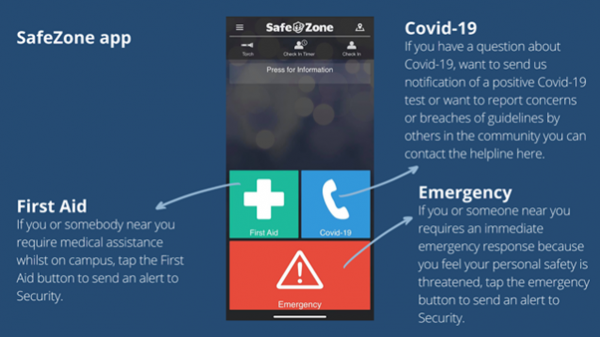
CriticalArc, the company responsible for SafeZone say that the app can “monitor compliance with social distancing” with the ability to measure “the density of people in particular areas or buildings, per floor” and “detect a potential breach of policy”.
UoM said they will use this “real-time location data to send notifications to remind people about social distancing where a building is crowded”.
A particular fear for some students is CriticalArc’s references to the effectiveness of SafeZone’s tracking capabilities in “outdoor areas where guest speakers or protests sometimes occur”, particularly in light of recent protests at Fallowfield Campus.
But UoM has clarified this, saying: “The app is not mandatory, nor is it mandatory for any student or staff to check in on the app, therefore it wouldn’t be used during student protest.”
Oskar Lawson-Jones, a first-year studying Archaeology and Anthropology said: “It’s absolutely unbelievable how they’re trying to pretend like it’s just a peace-of-mind app for mental health when they’re tracking us. I can’t think of anyone I know who would download it.”
The university spokesperson added: “SafeZone is a safeguarding service, not a tracking app. One of its features is location-sharing for health and safety purposes. However, it has several other features, some of which are available now and others which will be available during a phased release.”
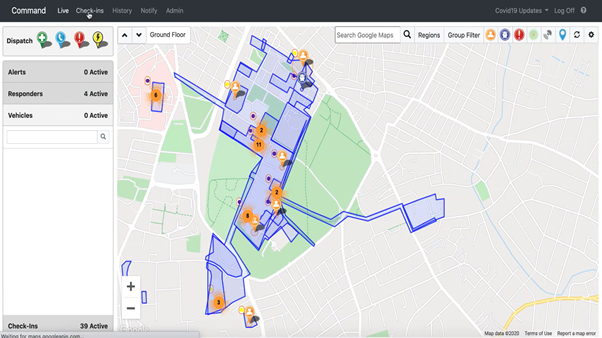
While the app does check students out as they leave campus, this is little consolation for first years living in university accommodation as they live on campus, a place they will now spend more time in due to the new national lockdown.
The University’s website states: “If you download the app and activate location tracking by checking-in, you are consenting to the recording of your location data.”
Upon download, SafeZone requires you to grant multiple location permissions, motion detection, Bluetooth and notifications in order to use it.
UoM says this “always allow” access to your location is so that the app knows where you are in an emergency. They add the data is stored locally on the device and not shared with us until a user check’s in or activates an alert button.
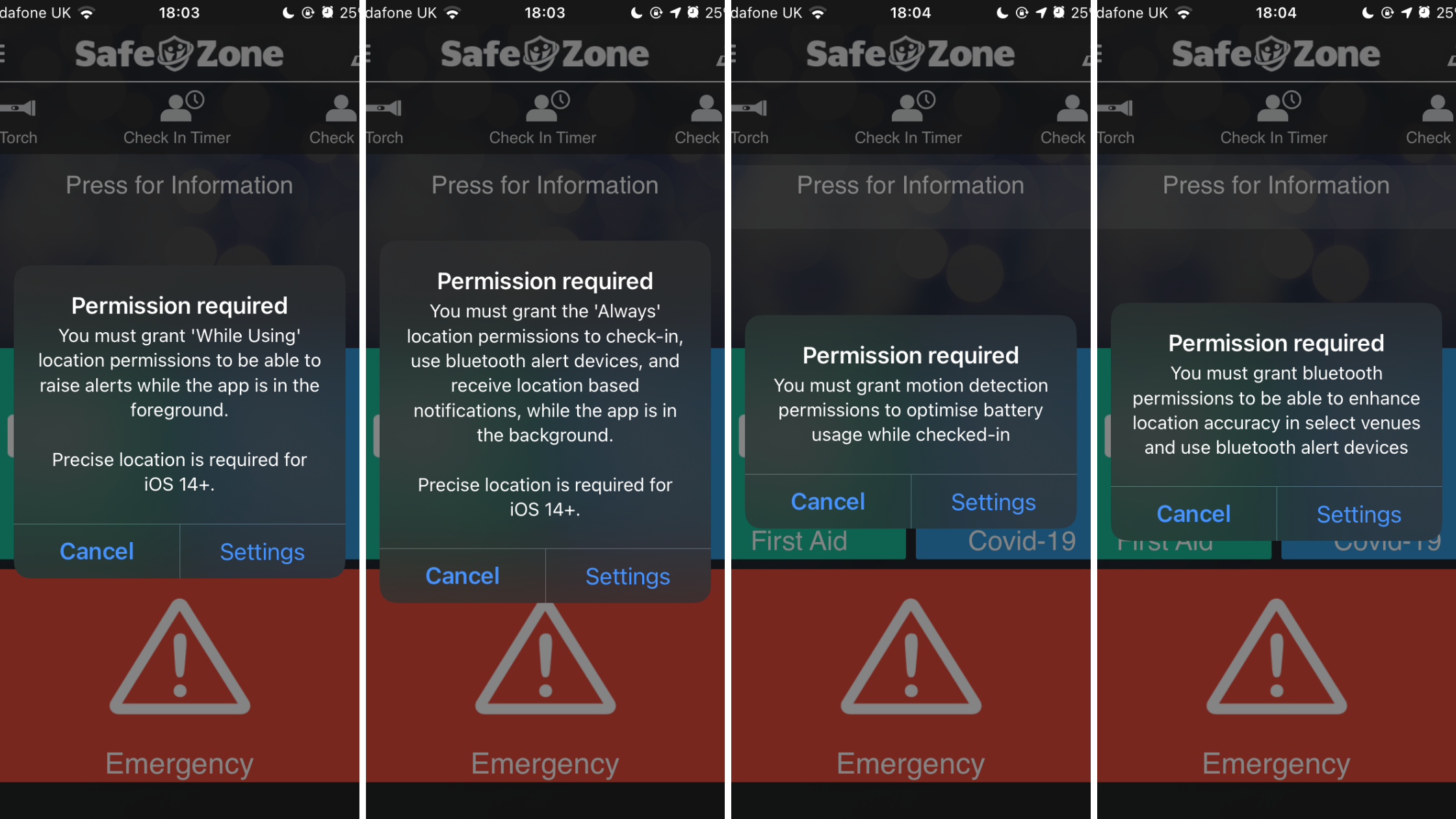
The spokesperson added: “We will not use SafeZone for any sort of management or student discipline purpose or to check your attendance.
“The app is for health and safety reasons only and the data it collects would never be used for management of staff or in a student disciplinary. To do so would break a legally agreed contract with the suppliers. It has never been the intention to use it for this purpose.”
Yet students are still angry.
Nicola Mazuryk, a first-year Politics and Modern History student said: “I don’t think a lot of students even wanted SafeZone, they just wanted the uni to be more supportive, treat us like human beings and stop using us for monetary gain.
“I’m so sick of it, it’s turned into students vs the higher-ups. The uni had time to figure this out before we came to live here.
“It’s another thing that portrays UoM as having no compassion towards students; they just want us to be obedient and quiet.”
When we put these claims to the University, they released the following statement: “The safety and wellbeing of our students is always of the utmost importance to the university as is our commitment to the protection and safeguarding of their data and personal information. These are also the primary reasons why we chose to use SafeZone app.
“First and foremost, the app is completely voluntary, though we would encourage as many students as possible to use it. That is because it has multiple ways of enhancing safety on campus and in residences, such as personal alarm, quick and easy access to our security teams and better signposting for our mental health and support services.
“Our students can rest assured that, prior to us choosing this platform, we carried out an extremely thorough due diligence and consulted with other universities who have been using it successfully for a substantial amount of time. We then also ran a trial with both staff and students and all the feedback we got was extremely positive.
“With regards to privacy, SafeZone is compliant with EU General Data Protection Regulation (GDPR) and follows industry best practice as laid out by the Information Commissioner’s Office (ICO). Plus, CriticalArc (the app developer) regularly hires independent data privacy experts to audit and verify compliance with GDPR and ICO regulations.
“With regard to actively encouraging students to raise concerns over socially distancing, this is for any concern not specifically student-related. This is just one of the tools we’re encouraging students and staff to use to help us provide real-time communication/advice to help keep our community safe.”
